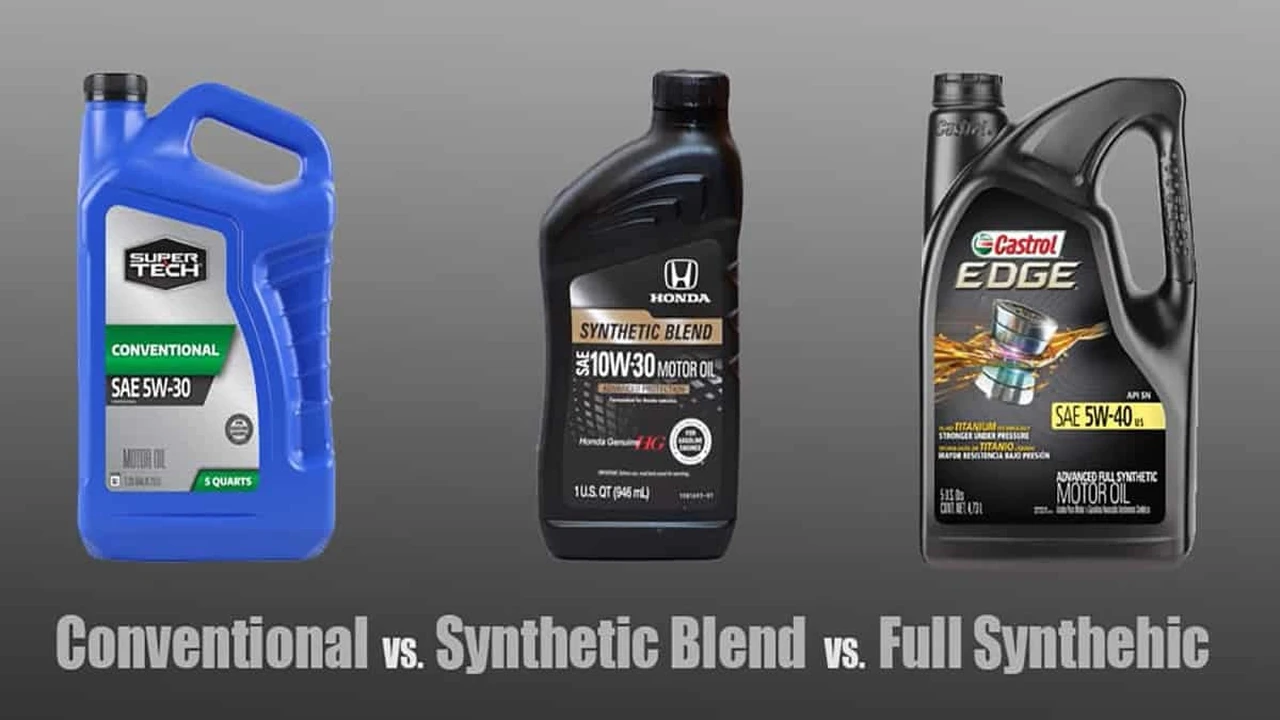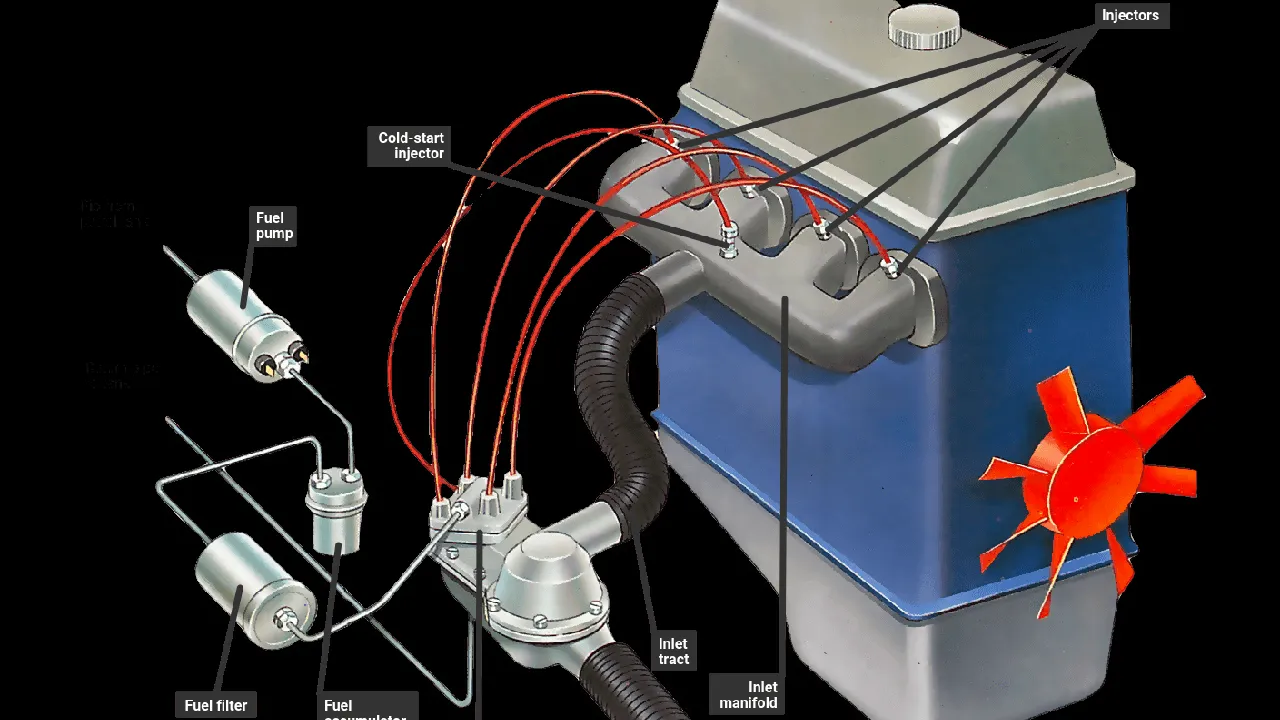Choosing the Right Engine Oil: Viscosity, Synthetic vs. Conventional
Proper engine maintenance is crucial for long-lasting performance. This guide covers 7 essential maintenance tips, including oil changes, filter replacements, and fluid checks. Keep your engine running smoothly with regular maintenance.

Understanding Engine Oil Viscosity for Optimal Performance
Choosing the correct engine oil is arguably one of the most critical aspects of maintaining your vehicle's engine. Oil serves as the lifeblood of your engine, lubricating moving parts, reducing friction, dissipating heat, and cleaning contaminants. Selecting the wrong oil can lead to decreased performance, increased wear and tear, and even catastrophic engine failure. This guide dives deep into understanding engine oil viscosity and the differences between synthetic and conventional oils to help you make the best choice for your vehicle.
Decoding Engine Oil Viscosity Grades SAE Numbers Explained
Engine oil viscosity is measured using a system developed by the Society of Automotive Engineers (SAE). This system uses numbers to indicate the oil's resistance to flow at different temperatures. You'll typically see two numbers separated by a "W," such as 5W-30 or 10W-40. Let's break down what these numbers mean:
- The First Number (with the "W"): This indicates the oil's viscosity at cold temperatures (the "W" stands for Winter). A lower number means the oil is thinner and flows more easily in cold weather. For example, a 5W oil will flow better in cold temperatures than a 10W oil. This is crucial for cold starts, as a thinner oil can quickly lubricate engine parts, reducing wear and tear.
- The Second Number: This indicates the oil's viscosity at operating temperatures (typically 100°C or 212°F). A higher number means the oil is thicker and maintains its viscosity better at high temperatures. For example, a 40 oil will maintain its viscosity better at high temperatures than a 30 oil. This is important for protecting engine parts under heavy load and high-temperature conditions.
Example: A 5W-30 oil is designed to flow like a 5-weight oil in cold temperatures and like a 30-weight oil at operating temperatures. This multi-viscosity characteristic allows the oil to provide good lubrication in a wide range of conditions.
Synthetic vs Conventional Oil Choosing the Right Type for Your Engine
Beyond viscosity, another critical factor to consider is whether to use synthetic or conventional oil. These two types of oil differ significantly in their composition, performance characteristics, and cost. Here's a breakdown of the key differences:
Conventional Oil
Conventional oil, also known as mineral oil, is refined directly from crude oil. It's the most basic type of engine oil and has been used for decades. Here are some of its characteristics:
- Pros:
- Lower Cost: Conventional oil is typically the least expensive option.
- Suitable for Older Vehicles: It's often recommended for older vehicles with higher mileage, as it can help seal leaks and reduce oil consumption.
- Cons:
- Lower Performance: Conventional oil doesn't perform as well as synthetic oil in extreme temperatures. It can thicken in cold weather and thin out at high temperatures, reducing its lubricating properties.
- Shorter Oil Change Intervals: Conventional oil breaks down more quickly than synthetic oil, requiring more frequent oil changes (typically every 3,000-5,000 miles).
- Less Resistant to Sludge Buildup: Conventional oil is more prone to forming sludge and deposits, which can clog engine passages and reduce performance.
Synthetic Oil
Synthetic oil is manufactured through a chemical process that creates a more uniform and refined oil. This results in superior performance characteristics compared to conventional oil. Here are some of its characteristics:
- Pros:
- Superior Performance: Synthetic oil offers better protection in extreme temperatures, maintaining its viscosity in both cold and hot conditions.
- Longer Oil Change Intervals: Synthetic oil lasts longer than conventional oil, allowing for extended oil change intervals (typically 7,500-10,000 miles or more).
- Reduced Sludge Buildup: Synthetic oil is more resistant to sludge and deposit formation, keeping engine passages clean and promoting better performance.
- Improved Fuel Economy: Some synthetic oils can improve fuel economy by reducing friction within the engine.
- Cons:
- Higher Cost: Synthetic oil is typically more expensive than conventional oil.
- Not Always Necessary: For some older or less demanding vehicles, the benefits of synthetic oil may not justify the higher cost.
Synthetic Blends
Synthetic blend oils are a mixture of conventional and synthetic oils, offering a compromise between cost and performance. They provide some of the benefits of synthetic oil at a lower price point.
Choosing the Right Viscosity and Oil Type Engine Recommendations
The best way to determine the correct engine oil viscosity and type for your vehicle is to consult your owner's manual. The manufacturer's recommendations are based on extensive testing and are designed to provide optimal performance and protection for your engine. However, here are some general guidelines:
- Newer Vehicles: Most newer vehicles (especially those manufactured after 2010) are designed to use synthetic or synthetic blend oils with specific viscosity grades. Consult your owner's manual for the recommended oil type and viscosity.
- Older Vehicles: Older vehicles may be able to use conventional oil, but synthetic or synthetic blends can still offer benefits, especially in extreme climates. Consider upgrading to a synthetic blend if you live in an area with very hot or very cold temperatures. If your older vehicle has high mileage, you might consider a high-mileage oil (available in both conventional and synthetic formulations) that contains additives to help seal leaks and reduce oil consumption.
- High-Performance Vehicles: High-performance vehicles and those subjected to heavy use (e.g., towing, racing) typically require synthetic oil with a higher viscosity grade to provide maximum protection under demanding conditions.
- Climate: In colder climates, a lower "W" number (e.g., 0W or 5W) is recommended to ensure good cold-start performance. In hotter climates, a higher second number (e.g., 40 or 50) is recommended to maintain viscosity at high temperatures.
Specific Engine Oil Recommendations and Product Reviews
Mobil 1 5W-30 Synthetic Motor Oil
Description: Mobil 1 is a widely recognized and trusted brand known for its high-quality synthetic motor oils. The 5W-30 formulation is a popular choice for many modern vehicles.
Key Features:
- Advanced full synthetic formula
- Exceptional wear protection
- Excellent high-temperature performance
- Improved fuel economy
- Extended oil change intervals
Usage Scenario: Suitable for a wide range of vehicles, including passenger cars, SUVs, and light trucks. Ideal for daily driving and moderate to heavy-duty use.
Price: Approximately $25-$30 per 5-quart jug.
Castrol Edge 5W-30 Advanced Full Synthetic Motor Oil
Description: Castrol Edge is another top-tier synthetic motor oil known for its strength and ability to withstand extreme engine conditions.
Key Features:
- Fluid Titanium Technology for enhanced oil film strength
- Superior protection against wear and deposit formation
- Excellent performance in high-stress driving conditions
- Suitable for both gasoline and diesel engines
Usage Scenario: Excellent for high-performance vehicles, turbocharged engines, and vehicles subjected to frequent stop-and-go driving.
Price: Approximately $28-$35 per 5-quart jug.
Pennzoil Ultra Platinum 5W-30 Full Synthetic Motor Oil
Description: Pennzoil Ultra Platinum is formulated with PurePlus Technology, a gas-to-liquid process that produces a very pure base oil.
Key Features:
- Made from natural gas with PurePlus Technology
- Exceptional cleanliness and sludge protection
- Superior wear protection
- Improved fuel economy
Usage Scenario: Ideal for vehicles that require exceptional engine cleanliness and protection, especially those with direct-injection engines.
Price: Approximately $30-$40 per 5-quart jug.
Valvoline High Mileage with MaxLife Technology 5W-30 Synthetic Blend Motor Oil
Description: Valvoline High Mileage is specifically designed for vehicles with over 75,000 miles. It's a synthetic blend that provides added protection for older engines.
Key Features:
- MaxLife Technology to combat wear and leaks in older engines
- Enhanced detergents to clean sludge and deposits
- Seal conditioners to help prevent leaks
- Excellent wear protection
Usage Scenario: Recommended for vehicles with high mileage to help extend engine life and prevent common issues associated with older engines.
Price: Approximately $20-$25 per 5-quart jug.
Comparing Engine Oil Brands Performance and Cost
When choosing between engine oil brands, it's helpful to consider both performance and cost. Here's a brief comparison of the brands mentioned above:
- Mobil 1 vs. Castrol Edge: Both are top-tier synthetic oils offering excellent performance. Castrol Edge's Fluid Titanium Technology may provide a slight edge in high-stress conditions, while Mobil 1 is known for its widespread availability and consistent performance.
- Pennzoil Ultra Platinum vs. Other Synthetics: Pennzoil Ultra Platinum stands out due to its PurePlus Technology, which results in a very pure base oil. This can be particularly beneficial for engines prone to deposit formation.
- Valvoline High Mileage vs. Other Oils: Valvoline High Mileage is specifically formulated for older engines, making it a great choice for vehicles with over 75,000 miles. It offers added protection and helps address common issues in older engines.
Cost Comparison:
- Most Expensive: Pennzoil Ultra Platinum
- Mid-Range: Castrol Edge and Mobil 1
- Least Expensive: Valvoline High Mileage
Oil Change Frequency Maximizing Engine Life
Following the recommended oil change intervals is crucial for maintaining engine health. Here are some general guidelines:
- Conventional Oil: Change every 3,000-5,000 miles or every 3-6 months, whichever comes first.
- Synthetic Oil: Change every 7,500-10,000 miles or every 6-12 months, depending on the oil type and driving conditions.
- Severe Driving Conditions: If you frequently drive in severe conditions (e.g., stop-and-go traffic, towing, extreme temperatures), you may need to shorten your oil change intervals. Consult your owner's manual for specific recommendations.
It's always better to err on the side of caution and change your oil more frequently than recommended, especially if you're unsure about your driving conditions or oil type. Regular oil changes are a small price to pay for protecting your engine and extending its lifespan.
DIY Oil Change vs Professional Service Weighing the Options
You have two main options for changing your engine oil: doing it yourself (DIY) or taking your vehicle to a professional service center. Both options have their pros and cons:
DIY Oil Change
- Pros:
- Cost Savings: DIY oil changes are typically cheaper than professional services, as you only pay for the oil and filter.
- Convenience: You can change your oil at your own convenience, without having to schedule an appointment.
- Satisfaction: Some people enjoy the satisfaction of performing their own maintenance tasks.
- Cons:
- Time Commitment: DIY oil changes require time and effort.
- Tools and Equipment: You'll need to have the necessary tools and equipment, such as a wrench, oil filter wrench, drain pan, and jack (if needed).
- Disposal of Used Oil: You'll need to properly dispose of the used oil, which can be inconvenient.
- Potential for Mess: Oil changes can be messy if you're not careful.
Professional Oil Change
- Pros:
- Convenience: Professional oil changes are quick and convenient.
- No Mess: You don't have to worry about making a mess or disposing of used oil.
- Expertise: Professional technicians have the knowledge and experience to perform the oil change correctly.
- Additional Services: Many service centers offer additional services during an oil change, such as tire rotations and fluid checks.
- Cons:
- Higher Cost: Professional oil changes are typically more expensive than DIY oil changes.
- Scheduling: You'll need to schedule an appointment, which can be inconvenient.
Recommendation: If you're comfortable working on your car and have the necessary tools and equipment, a DIY oil change can be a great way to save money. However, if you prefer convenience and don't want to deal with the mess, a professional oil change is a good option.
Final Thoughts on Engine Oil Choices
Choosing the right engine oil is a critical aspect of vehicle maintenance. Understanding the differences between viscosity grades and oil types (conventional vs. synthetic) is essential for making an informed decision. Always consult your owner's manual for the manufacturer's recommendations, and consider your driving conditions and vehicle type when selecting engine oil. Whether you choose to perform DIY oil changes or take your vehicle to a professional service center, regular oil changes are crucial for maintaining engine health and extending its lifespan. By following these guidelines, you can ensure that your engine receives the proper lubrication and protection it needs to perform optimally for years to come.
:max_bytes(150000):strip_icc()/277019-baked-pork-chops-with-cream-of-mushroom-soup-DDMFS-beauty-4x3-BG-7505-5762b731cf30447d9cbbbbbf387beafa.jpg)






